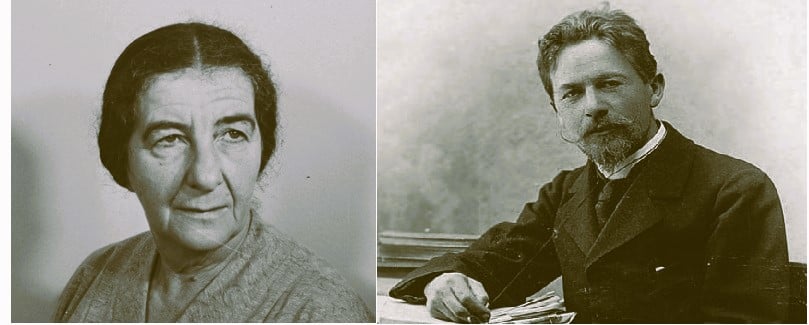|
Getting your Trinity Audio player ready...
|
By Lev Tsitrin
Just as Greek slaves developed the genre of fable to communicate their grim view of the world and its powers that be, the almost equally downtrodden Russians perfected an equally sparkling genre of oral literature which they call “anecdote” — a pithy story with an unexpected, and often hilarious, ending that conveyed their wry sense of topsy turvy reality.
One such story — less typically hilarious than most, but not any less instructive I heard, way back when, from my Mom popped into my mind upon hearing the news of American-brokered Israel-Lebanon ceasefire: a horse thief is brought before a judge. “Well — says the judge — the criminal code spells out three years of hard labor for horse stealing — but considering that this is the defendant’s first time doing it, I will release him on his own recognizance.” A month later, the guy is again caught riding a stolen horse. “Well — says the judge — the criminal code condemns anyone guilty of such crime for three yeas of hard labor — but considering how young the defendant is, I will release him on his own recognizance.” Another month passes and the fellow faces the judge yet again. “Well — says the judge — the criminal code allots the punishment of three years of hard labor for stealing a horse.” “Sorry, Mr. Judge, says the defendant — but aren’t you supposed to say “but considering…”?
For decade and a half, Israeli political and military establishment watched Hezbullah violate UN resolution 1701 that ended the 2006 war by arming itself to the teeth and entrenching right on Israel’s border; it observed Hamas abusing the 2005 disengagement from Gaza by bringing huge quantities of arms across the border with Egypt, digging a warren of military tunnels, and training a terrorist army — and instead of dismantling the threat, kept repeating the mantra of “but considering” — “considering” that this would mean starting a war, and a war would mean not only casualties but also international opprobrium — and did nothing despite the protests of clear-eyed politicians like Avigdor Lieberman who were powerless to overcome the collective obstructionism of the “considerers.”
I do not know whether Lieberman ever quoted to them his fellow-Russian, the famous playwright Anton Chekhov’s dictum that “if in Act 1 there is a gun on the wall, in Act 5 it will shoot” — but October 7 played out exactly according to Chekhov’s script, though in the case of Lebanon the very dragged-out “Act 5” is now apparently drawing to a close, given the recently-announced ceasefire.
But have Israeli leaders learned the lesson of the bloody play called “October 7” — the lesson that, on seeing Hezbullah’s or Hamas’ gun on a wall of a Lebanese or Gazan house, that house should be immediately destroyed, bad press or not?

The opinion of another authority on the subject, Golda Meir is worth noting — she is reported to have observed that she would vastly prefer bad press to a good epitaph. On October 7, the kind-hearted world penned plenty of good epitaphs for Israeli victims of Hamas’s attack — but when Israel started implementing measures that would prevent its further repetition — i.e. dismantling Hamas — the avalanche of bad press followed instantly. A good epitaph is not worth much — it does not even prevent bad press.
The lesson of October 7 boils down to answering a simple question: what was the use of Israel endlessly stretching the “but considering…” when witnessing Hezbullah and Hamas arming themselves? It brought nothing but death and destruction. And likewise, the question of whether a ceasefire with Lebanon is a good move, depends on the answer to another question, the question of whether the age of “but considering” is over, of whether any violations of the ceasefire will be crushed with an iron fist, come what may.
Time will tell. Unfortunately, as some Soviet wit observed, “history is a science that doesn’t teach anybody anything.” Unless Israelis learn to take Chekhov — and their own history — seriously, and stop endlessly repeating “but considering,” the horrible bloody history of October 7th will keep repeating itself.





